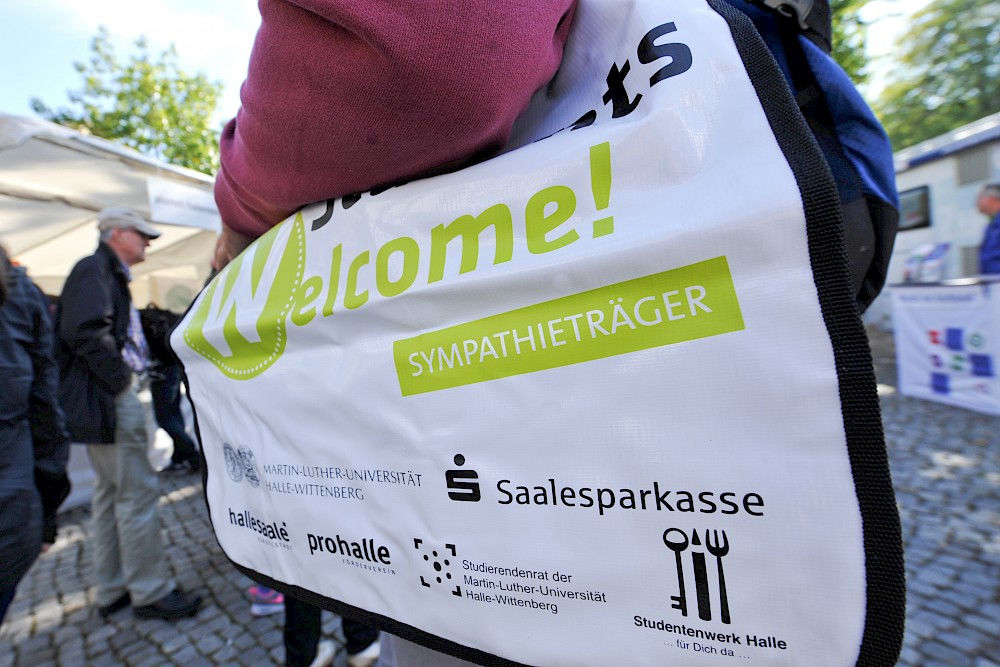University expands its commitment to helping refugees

The 44 refugees who have signed up as guest auditors at the University of Halle were greeted with a friendly “Herzlich willkommen – Welcome” when they arrived in October. They each received a student welcome bag at their first meeting in the Hallischer Saal in the Burse zur Tulpe. The shoulder bags are normally given out to first-year students during the university’s matriculation ceremony. They contain lots of informational brochures, a book of vouchers, and small gifts from businesses in the region. The refugees were also welcomed by around 150 fellow students who are participating in a tandem project designed to help the newcomers. The idea is that the students will work in small groups to ensure that their tandem partners always find the right seminar rooms and lecture theatres, and to help them get involved in normal student life in Halle. Die Linke.SDS, a student organisation linked to Germany’s Left Party, initiated the project.
As the participants were getting to know each other, they completed their first task, which was to fill out an application for a guest library card. Mirjam Sorge from the student council working group, Refugees Welcome, is pleased by how popular the scheme is proving: “We’ve had a lot of feedback from the students and the refugees.” Since far more helpers than guest auditors have registered, each refugee will have a group of students to look after him or her. Sorge says this is a good thing, because it means the students can take it in turns and still be able to attend their regular classes. So many people were interested that not everyone could be allocated a tandem partner. “So the students just decided to form a group, and are planning to organise cookery evenings and a German course,” says Sorge.
Many of the refugees come from Syria and Iran, but there are also others from Eritrea and Iraq. The newcomers have diverse interests. They are attending economics seminars, and lectures on nutrition and sports science, computer science, and even law. “In the case of law, the students have formed small study groups so they can work through the material with the refugees,” says Anne Geschonneck, who is helping to organise the tandem project. The volunteers come from all faculties of the university, which Geschonneck says is immensely practical – after all, students who are not on a certain course cannot always know where, say, lecture theatre 1.04 is on Von Seckendorff Platz, or where to find the Institute of Sociology on the new Steintor Campus.
The idea of allowing refugees to become guest auditors free of charge started with students at the Leuphana University of Lüneburg. “We heard about the project and wanted to do the same thing here,” says Sorge, and explains that the university has reacted very positively to the proposal. “The university is an international and open-minded place,” says Rector Udo Sträter, adding that guest auditor status can also make it easier to begin a normal degree course.
“We want to facilitate access to education, and we are planning other initiatives in addition to this one. The largest university in Saxony-Anhalt is getting involved in a variety of ways,” says Sträter. This includes helping the refugees apply for a regular degree course. In the case of refugees who lost the necessary documents while fleeing from their country, the university can offer a special assessment exam to establish their level of education. As the winter semester draws to a close, Geschonneck says that she is pleased with the way the programme has gone, and that the idea of bringing students and refugees together has been a success: “As well as meeting for lectures and seminars, most of the groups also go out to eat or do sport together.” Some of the refugees even say that the contact to the students is almost more important to them than attending the lectures.
